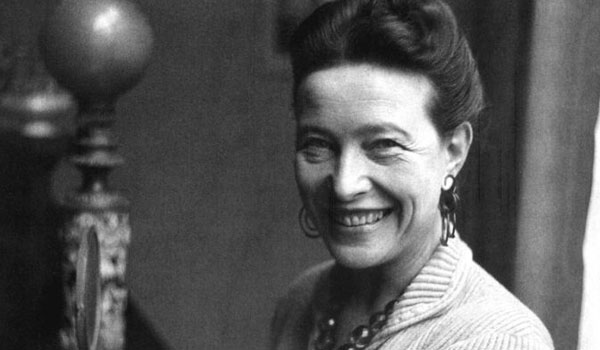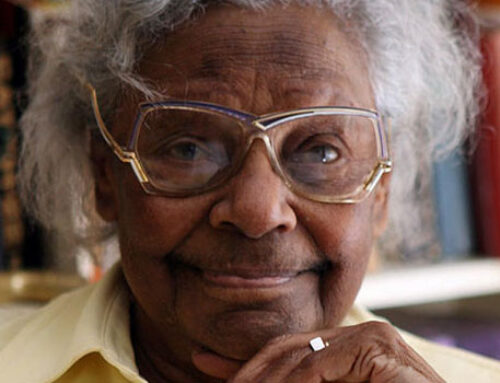Simone de Beauvoir was born in Paris in 1908. She was intellectually precocious, fuelled by her father’s encouragement; he reportedly would boast, “Simone thinks like a man!”
Studying mathematics and literature/languages at private colleges, she completed her degree in Philosophy at the Sorbonne in 1928. She was only the ninth woman to have received a degree from the Sorbonne as women had only recently been allowed to join higher education.
From 1929 to 1943, Simone taught at high school until she could support herself solely on the earnings of her writings. In 1929, the writer Jean-Paul Sartre and de Beauvoir became a couple and entered into a lifelong “soul partnership” of fifty-one years until his death. She chose never to marry or set up a joint household and she never had children.
The 1930s inspired a whole generation of French thinkers and Simone and Sartre were members of the intellectual fellowship of philosopher-writers working to the theme of Existentialism.
Simone’s prominent open relationships were controversial and at times over-shadowed her substantial academic reputation. A scholar lecturing with de Beauvoir chastised their “distinguished [Harvard] audience because every question asked about Sartre concerned his work, while all those asked about Beauvoir concerned her personal life.”
In her book The Second Sex, first published in 1949, she defines women as the “second sex” because women are defined in relation to men. Published in 1954, The Mandarins won her France’s highest literary prize, the Prix Goncourt.
Simone died in 1986 in Paris, aged 78 and is buried next to Sartre at the Montparnasse Cemetery in Paris.




